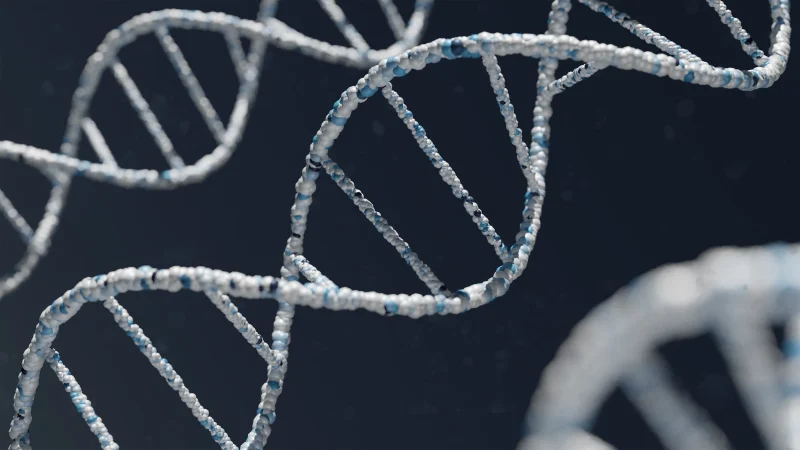
Struggling with Dual Diagnosis?
Table of Contents
Dealing with schizophrenia is a lifelong challenge. Not only are you experiencing social and occupational difficulties, but impaired cognitive functions as well as medication and treatment issues. Managing symptoms of schizophrenia involves taking antipsychotic medications. So finding the right medication and dosage to control symptoms and minimise side effects effectively can be a complex and ongoing process.
Abuse of medications or turning to illegal substances to self-medicate are common issues that may arise when treating schizophrenia. Addiction counselling is often recommended to help you identify the reasons behind this type of substance misuse and teach you healthier ways to cope.
This page will explore the relationship between schizophrenia and addiction as a dual diagnosis and how to overcome it.

Download Brochure
Defining Schizophrenia
Schizophrenia is a complex mental health condition affecting how you interpret situations and express emotions. There were previously five main subtypes of schizophrenia; however, over time, these subtypes have evolved, and the current edition of the Diagnostic and Statistical Manual of Mental Disorders (DSM-5) no longer differentiates between them. The United Kingdom uses the Interntaional Classification of Diseases (ICD) by the World Health Organisation, and there are some diagnostic differences based on the newest criteria mentioned in the documents.
Although these subtypes are no longer used for diagnostic purposes, some mental health professionals still find them useful for understanding how schizophrenia can present.

Paranoid Schizophrenia
This type involves intense paranoia, delusions, and hallucinations. People suffering from paranoid schizophrenia often believe that others are plotting against them and also see or hear things that are not there.

Hebephrenic Schizophrenia
People suffering from disorganised schizophrenia struggle with disorganised speech and behaviours. Their thoughts may be fragmented and disconnected, making it challenging to maintain coherent conversations or carry out daily tasks.

Catatonic Schizophrenia
Catatonic schizophrenia involves disturbances in motor behaviour. People suffering from this type of schizophrenia may exhibit rigid or excessive movements or remain immobile for long periods.

Residual Schizophrenia
Residual schizophrenia is described in people who have experienced previous episodes of schizophrenia but currently have milder symptoms or residual impairment.
There are also Undifferentiated schizophrenia, Post-schizophrenic depression, Simple schizophrenia as well as a section on ‘Other Schizophrenia’ which includes Cenesthopathic schizophrenia and Schizophreniform (
disorder NOS, psychosis NOS).
Each type of schizophrenia is unique, but they all share the common feature of affecting a person’s perception of reality. CATCH Recovery offers bespoke addiction counselling for people with dual diagnosis of schizophrenia and addictions, be it behavioural or substance addictions.
Symptoms for the Different Types of Schizophrenia
When it comes to schizophrenia, understanding the symptoms for each type can help you identify the type of schizophrenia you are suffering from and seek adequate support for it. The Royal College of Psychiatrists divides the symptoms into positive and negative:
Positive Symptoms
- Hallucinations: Schizophrenia can cause you to perceive things that aren’t there. Patients commonly hear voices, but these hallucinations can also be visions or sensations others can’t detect.
- Delusions: You may experience fixed beliefs that are not based on reality. These delusions can range from thinking someone is out to harm you to having special powers or being controlled by external forces.
- Ideal of reference: You may start giving special meaning to everyday events. While these can cause obsessions and compulsions, they can also be harmful as they may turn into fears and phobias.
- Meddled thinking: Your thought processes are broken up and inconsistent, you struggle to find one path of thinking which would bring you from problem to solution without spending time on other processes.
Negative
- Pathological inability to concentrate
- Lack of motivation to complete everyday objectives such as brushing teeth, getting out of bed and eating.
- Severe cases of agoraphobia or inability to stay around people even for short periods.
- Losing interest in life, leading to self-harm and possible suicidal ideation.
It’s important to note that not everyone will experience these symptoms simultaneously, or even in this combination. The condition is very diverse, especially when combined with an addiction which adds a separate set of behaviours to the list.
CATCH Recovery offers counselling for people with dual diagnosis of schizophrenia and addiction, whether you’re suffering from a behavioural addiction or a substance use disorder. With an understanding and caring approach, we aim to help you navigate through these conditions.

How Genetics Play a Role
When it comes to schizophrenia, genetics plays a significant role. Research has shown that people with a family history of schizophrenia are more likely to experience it, as specific genes may be associated with higher susceptibility. However, while genetic factors can influence the risk of developing schizophrenia, it’s important to remember that genetics is not the sole determining factor, and other factors, such as environmental influences, also contribute to its development. Having these genetic predispositions does not guarantee that someone will develop the condition. It merely increases their vulnerability.
Genetics can also play a role in certain compulsions that people with schizophrenia may experience. These compulsions, such as substance misuse or addictive behaviours, have a genetic component with a complex interplay of other factors.
Learning how genetics can influence the development of schizophrenia can help you to understand the condition better, know your risk and get the help and support you need. Also, by recognising the role of genetics, we can promote early intervention, provide appropriate treatments, and offer genetic counselling if needed.
What Is the Connection between Addiction and Schizophrenia?
The connection between addiction and schizophrenia is complex, with overlapping factors that can contribute to both conditions. Specific brain functions and circuits are thought to play a role in schizophrenia and addiction.
The brain’s reward system, involving dopamine and other neurotransmitters, is implicated in both conditions. Alterations in these brain functions can contribute to the development and maintenance of addiction and the symptoms experienced by individuals with schizophrenia.
In schizophrenia, disruptions in brain circuits involved in perception, cognition, and emotions can lead to the characteristic symptoms of the disorder. These same circuits, when compromised, can also impact decision-making processes, impulse control, and the ability to resist substance misuse.
Addictions Are Mental Illnesses Too
Addictions are mental illnesses that can profoundly impact your life, whether to substances or behaviours. Just like other mental health conditions, they require adequate support and treatment.
It’s important to understand that addiction is not solely a matter of willpower or moral weakness. It involves complex interactions of genetic, environmental, and psychological factors. The brain’s reward system becomes altered, making it challenging to control your impulses and resist the allure of addictive substances or behaviours.
Addiction can profoundly affect your well-being, relationships, and overall functioning. It can lead to physical, emotional, and financial hardships, often causing great distress and pain.
Common Co-occurring Addictions

By acknowledging the possibility of co-occurring addictions and their potential impact on schizophrenia, you can be well-informed of your risk of developing other addictions and get support. Empathy, understanding, and access to professional help are vital for people navigating the challenges of co-occurring addictions and potential mental health conditions.
Nicotine Addiction and Schizophrenia
Nicotine addiction, often associated with smoking, can have unique implications for people living with schizophrenia. Research suggests that people suffering from schizophrenia are more likely to smoke and become addicted to nicotine compared to the general population.
Nicotine, found in tobacco products, affects the brain’s chemistry and can create the false impression of alleviating specific symptoms of schizophrenia, such as cognitive deficits and negative emotions. However, this relief is short-lived, and long-term nicotine use can worsen symptoms and increase the risk of physical health issues.

Quitting smoking can be challenging, and additional factors related to schizophrenia can make it even more complex. However, quitting smoking can lead to improved physical and mental health outcomes. Getting support and therapy is essential if you have schizophrenia and are struggling with nicotine addiction.
Cocaine Abuse
Cocaine, a powerful stimulant, can have devastating effects on both physical and mental health. One of the most concerning risks is the development of cocaine psychosis. This condition can occur after prolonged or heavy cocaine use, leading to severe mental disturbances.
Cocaine psychosis can manifest as hallucinations, delusions, paranoia, and extreme agitation. These symptoms can be terrifying for the individual experiencing them, as well as for their loved ones. The erratic and unpredictable behaviour associated with cocaine psychosis poses a risk for the user and those around them.
Alcohol Abuse and Schizophrenic Conditions
The misuse of alcohol can have severe consequences for both physical and mental health, particularly for people with schizophrenic conditions. One of the most alarming risks is the development of alcohol psychosis, which can profoundly affect a person’s well-being.
Alcohol psychosis can involve hallucinations, delusions, confusion, and disordered thinking. These symptoms can be distressing for the person experiencing them and may disrupt their ability to function in daily life. Furthermore, alcohol-induced psychosis can exacerbate underlying schizophrenic symptoms, making the condition more severe and difficult to manage.
Marijuana and Schizophrenia
When it comes to marijuana use and schizophrenia, research suggests that marijuana use may increase the risk of developing or exacerbating symptoms of schizophrenia, especially in people who are already vulnerable due to genetic or environmental factors.
The CATCH Recovery team will recommend the best therapies to help you overcome and manage your diagnosis and regain control of your life. Our experienced addiction counsellors understand the complexities of this situation and can provide personalised guidance and support.

We Are Here to Listen
How Do Addictions and Schizophrenia Affect Us?
Addiction can profoundly affect you, both physically and emotionally. It can disrupt relationships, damage health, and hinder personal growth. The all-consuming nature of addiction can lead to financial strain, isolation, and a sense of hopelessness. Overcoming this illness requires resilience, support, and a commitment to change.
Schizophrenia, on the other hand, can significantly impact your thoughts, perceptions, and emotions. It can make everyday tasks challenging and lead to difficulties in social interactions. You may experience stigma, discrimination, and the frustration of trying to navigate a world that may not fully understand your struggles.
The combination of addiction and schizophrenia can create complex challenges. Substance abuse can worsen the symptoms of schizophrenia and hinder treatment efforts. Additionally, you may eventually turn to substances as a way to self-medicate or cope with the distressing symptoms of schizophrenia.
Mixing Medications with Drugs
Mixing medications, whether prescription or over-the-counter, with recreational drugs or substances of abuse, can have profound health implications. It’s important to remember that medications are prescribed with specific instructions for a reason—to ensure safety and effectiveness.
Combining medications with drugs can result in unpredictable interactions, adversely affecting physical and mental health. It can interfere with the intended therapeutic effects of medications and potentially worsen underlying medical conditions or mental health disorders.
Psychotic Episodes Can Be Affected by Substances
Psychotic episodes, which can occur in conditions such as schizophrenia or bipolar disorder, involve a loss of touch with reality, including hallucinations and delusions. It’s crucial to recognise that substances can significantly affect the frequency and severity of these episodes.
Certain substances, such as alcohol, marijuana, or stimulants, can trigger or worsen psychotic symptoms. They can disrupt brain chemistry, exacerbate existing mental health conditions, and increase the risk of experiencing a psychotic episode.

Finding Treatment for Schizophrenia and Addiction
Combating both conditions requires a comprehensive approach that addresses the unique challenges of dual diagnosis. Integrated treatment plans, tailored to the individual’s needs, can combine cognitive-behavioural therapy (CBT), motivational interviewing, and psychotherapy. By providing a supportive environment, access to specialised professionals, and a range of therapeutic interventions, we can help you navigate your recovery journey towards improved well-being and a fulfilling life.
Cognitive Behavioural Therapy (cbt)
CBT is a widely used therapy that identifies and changes negative thought patterns and behaviours. In the context of dual diagnosis, CBT can help you challenge distorted beliefs, develop coping strategies, and make healthier choices. It aims to improve both symptom management and substance use behaviours.
Eye Movement Desensitisation and Reprocessing (EMDR)
EMDR is a physical type of holistic therapy involving the movement of the eyes to calm important brain neurons. This type of innovative therapy helps manage PTSD, trauma and can also alleviate some of the background symptoms of Schizophrenia. It is instrumental in addiction treatment, as proven by our practitioners.
Traditional Psychotherapy
Various forms of psychotherapy can benefit people with schizophrenia and addiction. Psychotherapy provides a safe space to explore underlying emotional issues, improve communication skills, and develop healthy coping mechanisms. It can help you address trauma, manage stress, and build resilience, enhancing overall well-being and recovery.
Screening at the CATCH Recovery Centre
CATCH Recovery provides various screening options, ranging from a free support screening to a comprehensive paid clinical assessment involving multiple specialists and taking more time. The paid screening offers a thorough evaluation, allowing for a more precise understanding of the conditions at hand.
If you or a loved one are seeking accurate assessments and personalised treatment recommendations, take the first step today. Contact us to learn more about the screening options and find the support you need on your journey to recovery and improved well-being. Don’t wait any longer – reach out and start your path towards a brighter future.